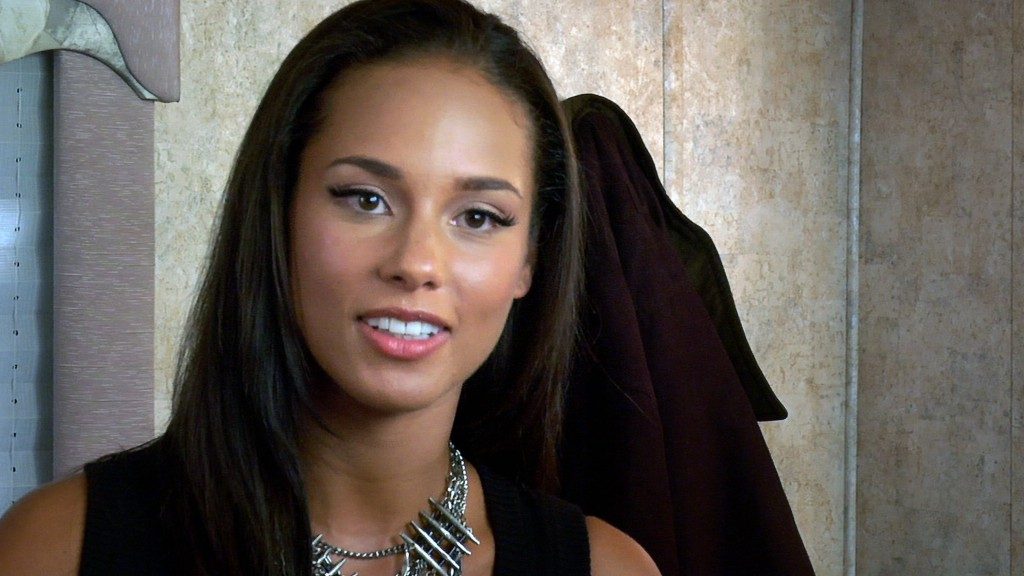Alice Elliott is the Academy Award-nominated documentary filmmaker of “The Collector of Bedford Street.” Her short “Body & Soul: Diana & Kathy” was nominated for an International Documentary Association Award, and her films have been presented in over 100 film festivals, as well as on HBO and PBS.
“Miracle on 42nd Street” will premiere at the 2017 DOC NYC film festival on November 11.
W&H: Describe the film for us in your own words.
AE: It’s a documentary about affordable housing for artists, the transformation of Times Square, and the Manhattan Plaza housing complex. Former residents include Alicia Keys, Larry David, Giancarlo Esposito, Donald Faison, Samuel L Jackson, and Angela Lansbury, who are all in the film.
W&H: What drew you to this story?
AE: When I grew up I was taught that artists were at best peripheral or unnecessary and at worst parasites on society. What I’ve learned is how valuable artists are to our communities. Artists provide stability, create safe spaces, and are engaged in their communities.
They help to grow the economy with galleries, workshops, and performance spaces. They attract vitality and make streets safer. Every community can provide affordable space for artists which will lead to better housing for everyone.
W&H: What do you want people to think about when they are leaving the theater?
AE: How can we have affordable housing for artists and others in our community? What would that look like? What is the first step?
W&H: What was the biggest challenge in making the film?
AE: Money and vision. It took us 10 years to make the film and we struggled with the direction, how to afford the archival footage, and how to tell the story in an engaging way.
W&H: How did you get your film funded? Share some insights into how you got the film made.
AE: Very smartly our first producers created a 501c3 not-for-profit corporation. We then received extremely generous donations from individuals who wanted to see this unique story reach a large audience. When those donations ran out, I applied to the National Endowment for the Arts and received a major grant.
We also accepted many “in-kind” favors from people who believe in the necessity of affordable housing. Our stars were not contributors because we felt they gave their time and that was the most precious thing they could give. We are still seeking donations to cover licensing our footage for educational use.
W&H: What does it mean for you to have your film play at DOC NYC?
AE: This is an extreme honor. Since the festival started, I’ve been attending and wishing, in my heart, to be part of it. What a moment this is — to work 10 years on a film and then get into the dream festival.
W&H: What’s the best and worst advice you’ve received?
AE: Best advice: Say yes. Worst advice: Just let him do the talking.
W&H: What advice do you have for other female directors?
AE: Work with other women, but don’t close the door to men. This has been a very happy gender collaboration. Hold on to your ideas, they have value, and join a support organization like Women in Film to help the women coming up. Share your experiences. Don’t keep hurtful secrets that other women need to know. Talk, lean in, speak up.
W&H: Name your favorite woman-directed film and why.
AE: Today my favorite woman director is Cynthia Wade because she mentored me. She has a number of documentaries including the Academy Award-winning “Freeheld.” She’s younger than I am. She went to film school and taught me the basics. She has very high standards and is uncompromising in her vision. She’s not afraid of conflict and pain on the screen.
W&H: There have been significant conversations over the last couple of years about increasing the amount of opportunities for women directors yet the numbers have not increased. Are you optimistic about the possibilities for change? Share any thoughts you might have on this topic.
AE: Since I teach at NYU, I hope we are bringing women directors forward who are part of the solution. It’s really hard to change a bias as deeply embedded as that against women directors — and cinematographers, I might add. We must be the change we want to see. Really, every single one of us has that responsibility.







